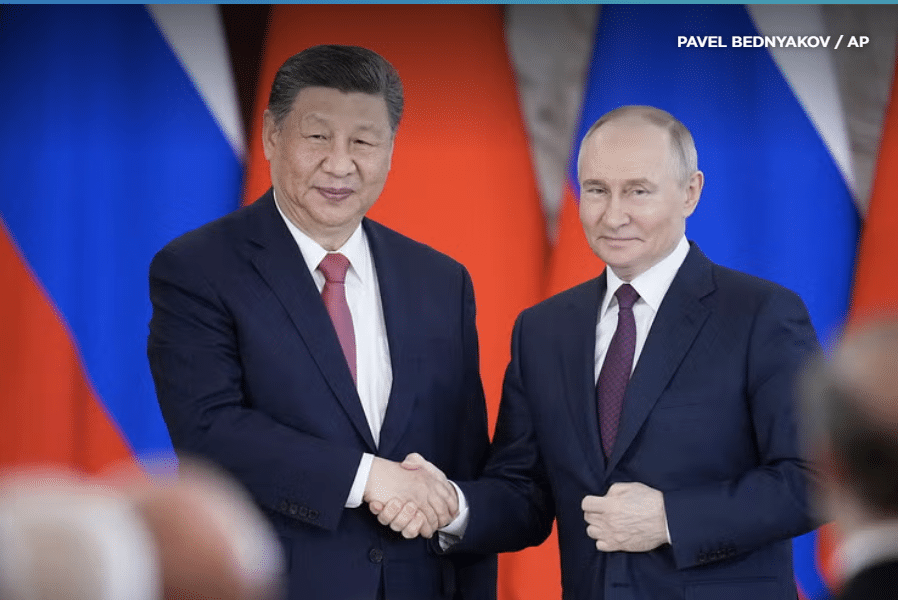The Chicago Council on Global Affairs and The Carter Center have just released the results of our recent public opinion survey in China, asking Chinese people their views on their countries economy, sources of international strength, and preferred posture toward the world. Survey data with this level of methodological rigor and scope are rare for China these days. We are very pleased to present our results in the form of four reports organized by theme.
All of our key findings are posted below along with links to the full report. The results are contradictory in places. There is much that might one day lead to conflict along with several open pathways toward a peaceful future. This is how we know we reached real humans. Each of us is a walking contradiction.
Chinese Public Divided on Whether Beijing Should Seek Shared Leadership or Global Dominance
Key findings:
-
Nine in 10 Chinese support their country’s active participation in world affairs (90%).
-
Part of this enthusiasm stems from a sense that China is a leading power in the world: Large majorities say their country is in at least a somewhat strong position in the world (97%) and expect it to get at least somewhat stronger in the next five years (95%).
-
Seven in 10 Chinese respondents say China has a unique character that makes it the greatest country in the world (69%) versus three in 10 who say China is no greater than any other country (30%).
-
While a plurality prefer China play a shared leadership role in the world (48%), four in 10 say it should take a dominant one (41%). One in 10 feel China should play no leadership role (11%).
Chinese Public Wants a Balanced Approach to the United States
Key findings:
-
Most Chinese (61%) say China should pursue a dual-pronged approach to the United States, undertaking either friendly cooperation or limiting US power when appropriate.
-
The Chinese public is divided over which country—China or the United States—is stronger economically or militarily.
-
Those who see the United States as a stronger economic power are more likely to favor friendly cooperation with the United States (32% vs. 23% overall). Those who see China as stronger are more likely to favor actively limiting American power (25% vs 15% overall).
-
The top two perceived threats to China both involve the United States: 57 percent say a US-China conflict over Taiwan is a major threat, and 55 percent say economic competition with the United States is a major threat.
-
Most Chinese say trade between China and the United States does more to strengthen China’s national security (71%) than it does to weaken it (28%).
-
Examining responses before and after the May 12 announcement of a US-China trade agreement, views of the United States improved, and support for binational cooperation increased following the announcement.
Chinese Public Broadly Confident in China’s Economy
-
A large majority (84%) believe China’s economy is doing well overall, and more than half feel comfortable with their own personal financial conditions, with a majority saying they have disposable income after taking care of necessities (56%).
-
For the minority who think economic conditions are currently bad (16%), the top concerns are youth unemployment (33%) and capital flight (24%).
-
Sizable majorities believe trade is good for China’s overall economy (73%), domestic job creation (76%), consumers like themselves (70%), and their own standard of living (73%).
-
Most prefer a policy of global free trade (60%), with the remainder split between advocating for a trade bloc of friends and partner countries (21%) or less commerce and more self-reliance (18%).
-
Educational attainment is a key factor in Chinese citizens’ personal economic situations, their opinions about the future of China’s economy, and their views of international trade.
Friends with Benefits: Chinese See Russia and North Korea as Beijing’s Closest Comrades
Key findings:
-
Large majorities of the public in China consider Russia (83%) and North Korea (76%) as their country’s friend. They also view the Taiwanese people (91%)—but much less so the Taiwanese government (44%)—as friendly.
-
About half the Chinese public says Australia (51%), the European Union (50%), and Vietnam (47%) are friends to China.
-
On the less congenial side, six in 10 Chinese say these Indo-Pacific countries are not friends of China: India (62%), the Philippines (61%), and South Korea (63%).
-
Of all the countries presented, the Chinese people consider the least friendly toward their country to be Japan (81% not a friend) and the United States (83% not a friend).
Read the full report here.

